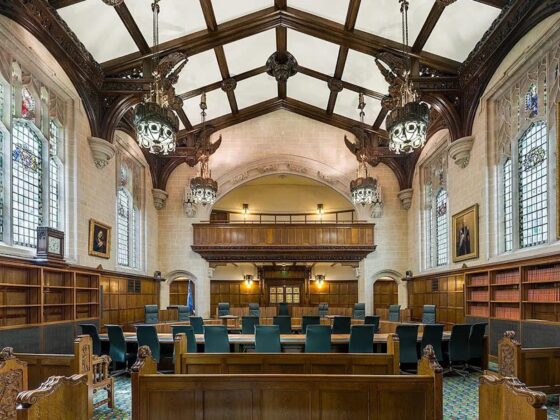
The legal profession has been shaped by many remarkable figures throughout history, but a select few barristers have left an indelible mark on the field. This article highlights four of the most significant barristers of all time, showcasing their notable cases, unique personalities, and contributions to the legal landscape.
#### 1. Sir Edward Marshall Hall (1858-1927)
Significant Cases:
Sir Edward Marshall Hall, often referred to as “the Great Defender,” is renowned for his mastery of criminal law and his ability to captivate juries. One of his most famous cases was that of R v. Boulton (1922), where he defended a man accused of murder. Hall’s eloquent and persuasive arguments helped to sway public opinion and bring attention to the complexities of the case, ultimately leading to an acquittal.
Personality:
Hall was known for his flamboyant style and charismatic presence in the courtroom. He had a knack for storytelling, often using dramatic techniques to engage the jury and convey the emotional nuances of a case. His charm and confidence made him a favorite among clients and the public alike, earning him a reputation as one of the most skilled advocates of his time.
Contribution to the Legal Field:
Beyond his courtroom successes, Marshall Hall significantly influenced the practice of criminal law in the UK. He was a pioneer in the use of forensic evidence and psychological insights in legal arguments. His emphasis on the importance of understanding human behavior in legal contexts laid the groundwork for contemporary criminal defense strategies. Additionally, Hall was instrumental in advocating for the rights of defendants and ensuring fair trials, contributing to the evolution of legal safeguards.
#### 2. Lord Denning (1899-1999)
Significant Cases:
Lord Alfred Denning, one of the most celebrated judges in British legal history, had a distinguished career as a barrister before his appointment to the High Court. Among his most notable cases is Candler v. Crane, Christmas & Co (1951), where he argued for the recognition of a duty of care in negligence cases. This case was pivotal in shaping the law of torts in England.
Another landmark case was Bristol Airport plc v. Secretary of State for Transport (1996), where Denning’s insights into administrative law and public policy significantly influenced the court’s decision-making process.
Personality:
Denning was known for his sharp intellect, practicality, and commitment to justice. His approachable demeanor and willingness to engage with lawyers and the public made him a beloved figure in the legal community. Despite his authoritative position, he often emphasized the importance of understanding the human element in legal matters, advocating for fairness and accessibility in the law.
Contribution to the Legal Field:
Lord Denning’s contributions to the legal field are vast. He was instrumental in developing key legal principles, including the doctrines of equity and the duty of care in tort law. His judgments often emphasized common sense and fairness, shaping modern English law. Denning’s commitment to justice extended beyond the courtroom—he wrote extensively about legal reform and education, influencing generations of lawyers and judges.
#### 3. Sir Thomas More (1478-1535)
Significant Cases:
Sir Thomas More, a lawyer, and statesman, is best known for his staunch opposition to King Henry VIII’s separation from the Catholic Church. His legal acumen was evident in his defense of the Catholic faith, particularly during the trials of those who opposed the King’s actions. More’s steadfast commitment to his principles led to his eventual trial and execution, making him a martyr for his beliefs.
Personality:
More was known for his intelligence, wit, and unwavering moral compass. His ability to combine legal reasoning with philosophical inquiry set him apart from his contemporaries. He was a man of deep conviction who believed in the rule of law and the importance of moral integrity, even in the face of death.
Contribution to the Legal Field:
Though his legal practice was curtailed by his political beliefs, More’s legacy endures through his writings and his steadfast commitment to justice. He emphasized the importance of law as a reflection of moral principles. His book, “Utopia,” explores themes of law, governance, and ethics, influencing legal thought and philosophy for centuries.
More’s life and legacy serve as a reminder of the moral responsibilities that accompany legal practice, inspiring lawyers to uphold justice and integrity.
#### 4. Sir John Mortimer (1923-2009)
Significant Cases:
Sir John Mortimer was not only a barrister but also a prolific writer and playwright, best known for creating the character Horace Rumpole, a witty and unconventional defense barrister. Mortimer’s legal career saw him involved in several high-profile cases, including the controversial case of R v. Hurst ( 1977), where he defended a man accused of murder in a case that raised significant questions about police conduct and the integrity of the justice system. Mortimer’s ability to weave compelling narratives around the law and humanize his clients made him a respected figure in the courtroom.
Personality:
Mortimer was known for his sharp wit, charm, and keen sense of humor. These traits not only made him a formidable advocate in court but also endeared him to the public through his literary work. His character Horace Rumpole became iconic, depicting the life of a barrister with humor and humanity. Mortimer’s storytelling ability allowed him to engage audiences with the complexities of the law, making legal concepts more accessible to the general public.
Contribution to the Legal Field:
Beyond his legal practice, Mortimer’s contributions to the field are significant due to his role in popularizing legal issues through literature. His Rumpole series brought attention to the workings of the criminal justice system, highlighting the challenges faced by defense lawyers and the importance of due process. Mortimer was also an advocate for civil liberties, often using his platform to speak out against injustices within the legal system.
His legacy is not only that of a skilled barrister but also as a cultural figure who bridged the gap between law and literature, inspiring a greater understanding of the legal profession among the public.
### Conclusion
The impact of these four barristers—Sir Edward Marshall Hall, Lord Denning, Sir Thomas More, and Sir John Mortimer—extends far beyond their courtroom victories. They have each contributed uniquely to the legal field, whether through landmark cases, influential writings, or their profound commitment to justice and ethical practice. Their personalities, marked by charisma, wit, and unwavering principles, have left an enduring legacy that continues to inspire legal professionals today. As the legal landscape evolves, their contributions serve as a guiding light for future generations of lawyers, reminding them of the importance of integrity, advocacy, and the human element in the pursuit of justice.







